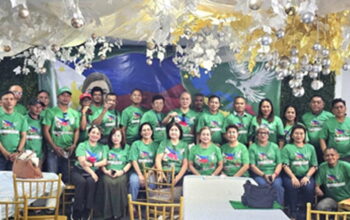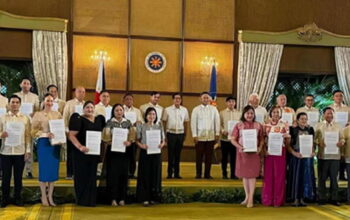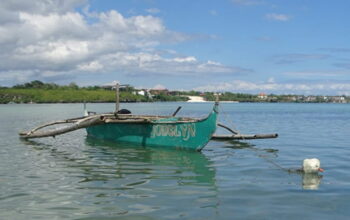VOTE-buying/selling has been a perennial problem that it seems nobody has yet to be convicted. It is considered an electoral corruption that will result to bad governance, according to a study.
The campaign against vote-buying/selling has been intensified through information and education attempt like what the organizers of candidates’ forum has done recently as the local and national elections are fast approaching on May 12.
The Institute for Democracy and Electoral Assistance said vote-buying hinders democratic processes and a pervasive issue in the country.
The Africa Leadership Initiative defines vote-buying perpetuates corruption throughout the entire political system. The campaign against vote-selling in the Philippines-Innovations for Poverty Action said that root causes of vote-buying stems from social, economic and political culture.
When a voter sells his votes or a candidate buys his vote, it weakens the public trust that candidates and officials should earn. It perpetuates a culture of mendicancy and benefits only the politicians and the few elites.
Another study pointed out that for politicians “vote-buying is a manifestation of moral corruption and lack of integrity due to a desire for power, influence and personal gain, as well as a lack of accountability and transparency.”.
Thus, corruption cases in the Philippines, like that of government procurement, technical malversation and the prevalence of political dynasties, according to the Dean Mendoza, et. al. of Ateneo de Manila University.
These cases include income and asset misdeclaration, red tape, influencing a subordinate to defy order protocol, bribery (includes vote-buying), connivance of public officials with drug lords and ghost projects.
As of October 2024, 80% of Congress (Lower House); as of December 2024, 71% of 82 governors, or 87%; Out of 71 governors, 47 are running for reelection and 19 have relatives running to replace them; and 57% or 13 out of 23 senators (looming 9 siblings).
Because of corruption, the Philippines ranks 116th among the 180 countries (3rd at the bottom) in the Corruption Perception Index (CPI) in 2022.
The ill effects of corruption after vote-buying is that “an estimated Php1.4 trillion (20%) has been lost to corruption in the years 2017, and 2018 (Php670 billion and Php752 billion, respectively),” according to Deputy Ombudsman Cyril Ramos. The Office of the Ombudsman survey conducted in 2013 showed that corruption causes poverty.
Because of massive corruption, “the overall quality of public ethics in the Philippines has declined,” The World Bank and Transparency International said.
The Congress passed the highly questionable annual budget for 2025 because of blanks in the bi-cam report and signed by Pres. Marcos Jr. amounted to Php6.33 trillion. But the expected revenue is only Php4.64 trillion, hence, short of Php1.69 trillion. This may cause the government to borrow. that it’s expected that the country’s borrowing would soar to some Php17.35 trillion. It would mean that every Filipino of over a hundred million population would brace for Php134,000 each as debt.
The education department should have the biggest slice of the pie budget but to no avail based on the provision of the 1987 Constitution. But according to the Programme for International Student Assessment (PISA) in 2022 the “Filipino students were among the world’s weakest in math, reading and science.” It is ranked 77th out of 81 countries and performed worse than the global average in all categories.
Another sad reality is that one in 3 children suffer from stunting caused by chronic malnutrition constantly hungry for along time. The Philippines is in top 10 countries globally with the highest number of stunted children, based on World Health Organization study.
The country lacks 165,443 classrooms and 25,000 schools having principals, according to DepEd.
Bishop Abet Uy urged everyone to, “give a chance for our country to change. Vote-buying is the root cause of corruption which is the greatest stumbling block for our country to progress. If we allow to buy votes, there is a high chance they will recover their expenses and will seek more to spend for the next elections.”
The AWRAFI, LUDABI, BLAC and other sponsoring organizations on the forum challenge everyone to address vote-buying/selling, while believing that stopping the culture of vote-buying will level the playing field and allow others the chance to join the race even without money.
The presentation thru power point was initiated by End-Vote-Buying Movement thru retired PGen, Edgardo Ingking. (rvo)



